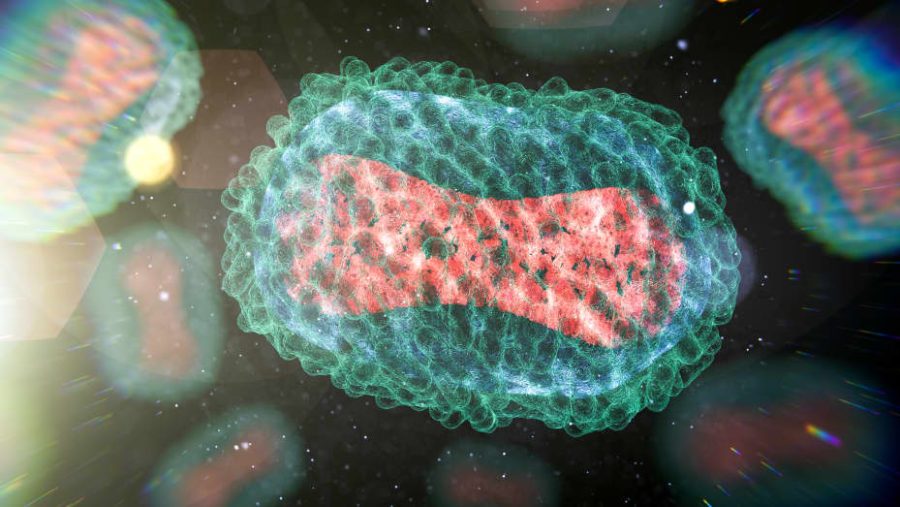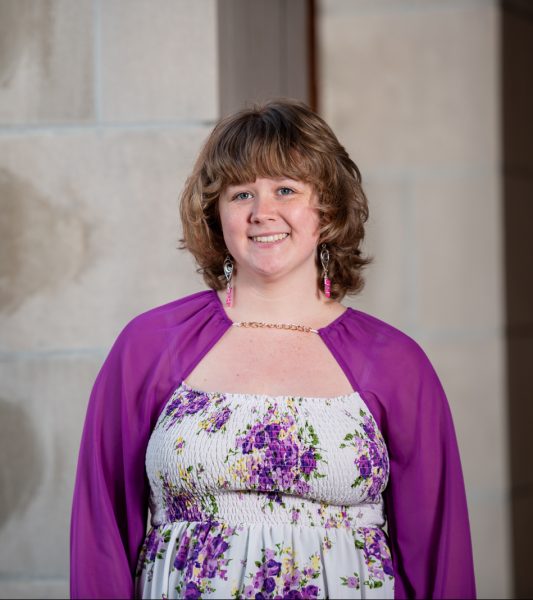Here’s what you need to know about Monkeypox
Educational signs have popped up around campus
Infectious disease expert Dr. Chris Ohl believes the risk of Monkeypox infection on Wake Forest’s campus is low.
September 10, 2022
The national rise of the monkeypox virus has sparked conversations around campus — here is what students have to say and how health experts say you should proceed.
Dr. Christopher Ohl, infectious diseases expert at Atrium Health Wake Forest Baptist, delivered a statement on Aug. 25 about the new virus.
“At this time, I believe the risk of infection is very low for the general population,” Ohl said. “However, anyone who is intimate with or in close proximity to someone with monkeypox symptoms for an extended amount of time can become infected.”
Several signs have been placed on Hearn Plaza to raise awareness about some facts and myths surrounding the virus. Some examples include “Regular hand washing doesn’t help prevent the spread — false” and “People of all sexual orientations and genders can contract monkeypox — true.”
Student reactions have varied — with some taking extra precautions to heed these messages and others who do not feel quite as concerned about the disease.
“I feel like people aren’t really talking about it enough,” junior Jenna Lo said. “Everyone still seems to be hyper-fixated on COVID-19.”
Junior Holly Mullen agrees that the student body could be made more aware of the issue.
“There should be some education process and more discussion,” Mullen said.
Outside of public awareness efforts, the university has been gauging infection risk and will continue to do so as the year progresses, according to Dr. Cecil D. Price, Executive Director of Student Health Services.
“The university is monitoring developments, getting regular updates from local and state public health officials and elevating awareness in the community about how to limit risks from the disease,” Price said.
In a statement to the Old Gold & Black, Price gave additional insight into what this disease looks like and how much of a threat it may pose.
“Monkeypox is a rare disease that is caused by an orthopoxvirus, which is in the same family as the virus that causes smallpox,” Price said. “It is primarily spread through direct contact with an infected person’s rashes, lesions or body fluids, during prolonged intimate contact with someone who is infected or by touching items that have been used by someone who is infected.”
Despite the unpleasant appearance of the virus, Price also assures that the dangers of the disease are relatively minor in most cases.
“Generally, only people who are having symptoms are contagious to others,” Price said. “The variant of monkeypox currently circulating in the U.S. is rarely fatal, and hospitalizations are infrequent, although the lesions caused by the virus can be incredibly painful.”
Price labels the general time between infection and onset of symptoms being between one and two weeks. According to the North Carolina Department of Health and Human Services, the overall course of the virus is between two to four weeks.
Student Health Services advises individuals who are diagnosed with monkeypox to isolate themselves from others until their rashes resolve.
The Jynneos vaccination is approved by the Center for Disease Control and Prevention (CDC) for preventing monkeypox. It has been made available to certain at-risk populations, including:
- People who have been in close physical contact with someone diagnosed with monkeypox in the last 14 days.
- Men in the LGBTQ+ community — or transgender individuals — reporting having multiple or anonymous sex partners, being diagnosed with a STI or receiving HIV pre-exposure prophylaxis in the last 90 days.
For more information on if you qualify for a vaccination, the NCDHHS recommends contacting your local health department. Additional information regarding the virus can be found on the CDC’s website at www.cdc.gov/poxvirus/monkeypox.













